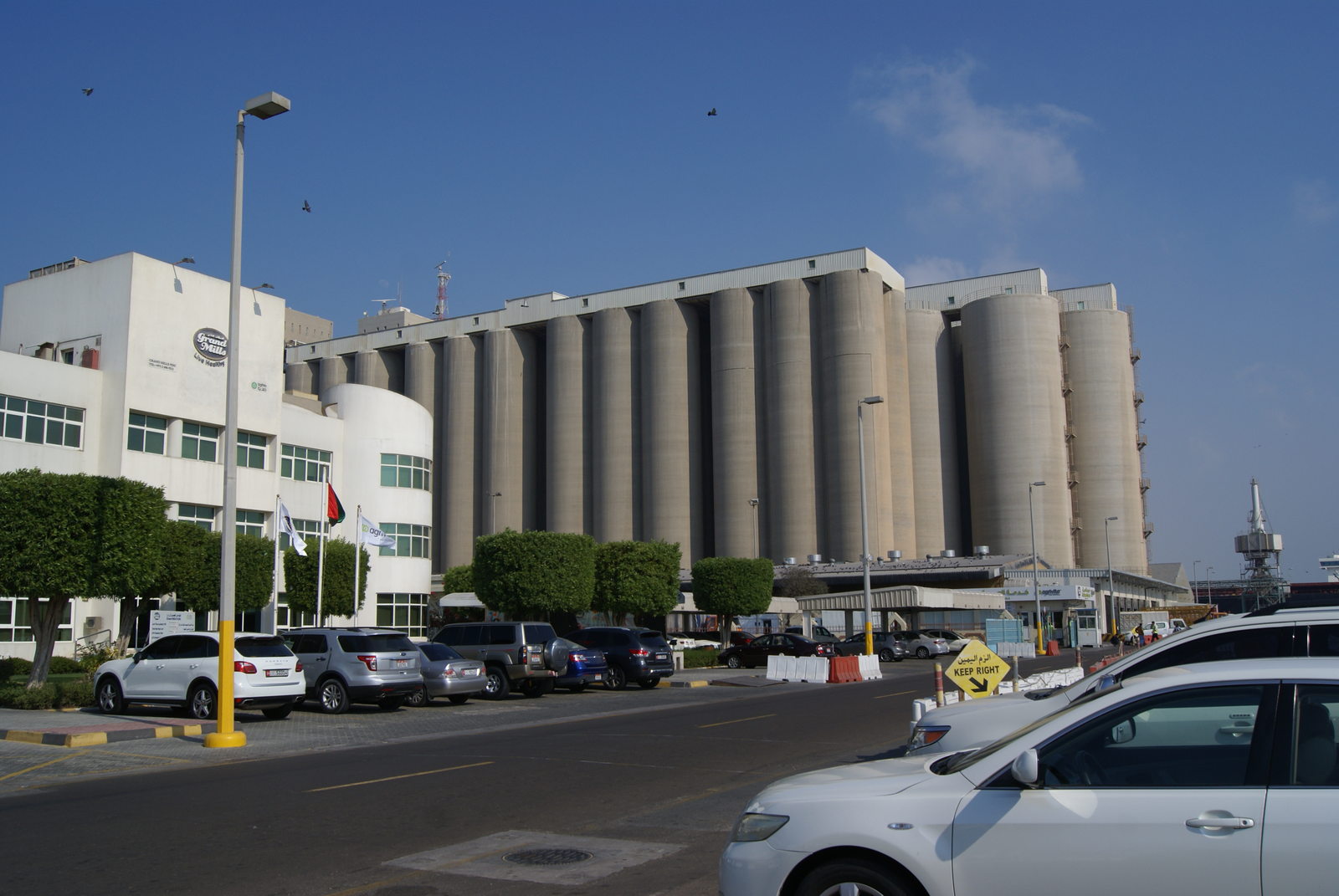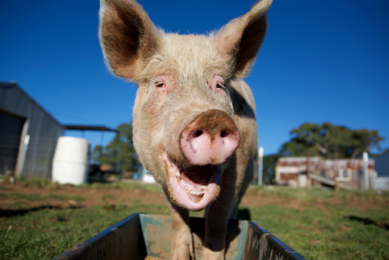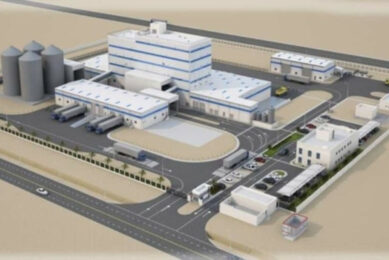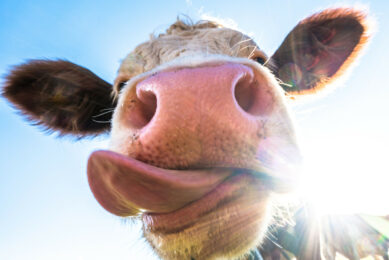A glimpse of Grand Mills in Abu Dhabi

Grand Mills produces around 2,000 tonnes of animal feed per day. All About Feed got the opportunity to talk to the operations director of the feed plant who explains more about the mill and its future plans.
The feed mill Grand Mills is located in the Mina Zayed port of Abu Dhabi, United Arab Emirates (UAE). It was established in 1978 by the late President in UAE, HH Sheikh Zayed Bin Sultan Al Nahyan, to help achieve food security in the region. Initially flour and silo based, the production of animal feed followed in 1981. The flour and feed mill were both incorporated into the mother company Agthia in 2004. Agthia is also known in the area for the production of fruit juices, tomato sauces and mineral water among others. Agthia, 51% owned by the government and 49% on the stock exchange, is the 7th largest food and beverage company in the Arab world and number one in the UAE.
Since 3 years, Nizar Faisal Kayali has been operational director of the feed mill. Kayali, born and raised in Syria, came to Abu Dhabi three years ago, as a result of the unstable situation in his home country. He ran his own feed mill in Syria, but had to leave this business behind. Now he runs the feed mill business in Abu Dhabi successfully. Currently, Grand Mills is the biggest animal feed mill in the region. The other 2 (smaller) feed mills in Abu Dhabi are NFPM and IFFCO.
Tailor-made feed formulations
 Each day, Grand Mills produces around 1,200 tonnes of flour for the human food industry, mainly sold in Abu Dhabi. The mill produces around 2,000 tonnes of animal feed per day, of which 28% cattle feed pellets (dairy, sheep) and 30% poultry feed pellets. The remaining percentage is made up with mash feed, mixed grain mixes and clean grains. Premix production is also done on site. Just like flour, the animal feed is primarily sold in the Abu Dhabi region and sold under the brand name Agrivita. Flour is sold under the brand name Grand Mills. In total, Agrivita produces over 50 types of feed for cows, sheep, racing camels (see box below Racing camels need balanced diet), poultry and ostriches. Some customers require specific/unique formulations (e.g. 5 stages for layers), Grand Mills is very customer orientated and tailor makes the formulations. “We have to import all the raw materials from different countries to produce the feed, which is not easy because of the amount you can ship is limited due to the container sizes. In addition, the transportation increases the price of raw materials with 20-30%. “ for example, we import corn from Brazil and hard wheat from the US. In total around 800,000 tonnes per year of raw materials is imported and processed in the feed mill”, explains Kayali. All the raw materials are checked for quality when the containers arrive at the port, all according to ISO regulations.
Each day, Grand Mills produces around 1,200 tonnes of flour for the human food industry, mainly sold in Abu Dhabi. The mill produces around 2,000 tonnes of animal feed per day, of which 28% cattle feed pellets (dairy, sheep) and 30% poultry feed pellets. The remaining percentage is made up with mash feed, mixed grain mixes and clean grains. Premix production is also done on site. Just like flour, the animal feed is primarily sold in the Abu Dhabi region and sold under the brand name Agrivita. Flour is sold under the brand name Grand Mills. In total, Agrivita produces over 50 types of feed for cows, sheep, racing camels (see box below Racing camels need balanced diet), poultry and ostriches. Some customers require specific/unique formulations (e.g. 5 stages for layers), Grand Mills is very customer orientated and tailor makes the formulations. “We have to import all the raw materials from different countries to produce the feed, which is not easy because of the amount you can ship is limited due to the container sizes. In addition, the transportation increases the price of raw materials with 20-30%. “ for example, we import corn from Brazil and hard wheat from the US. In total around 800,000 tonnes per year of raw materials is imported and processed in the feed mill”, explains Kayali. All the raw materials are checked for quality when the containers arrive at the port, all according to ISO regulations.
Investment in new equipment
Last year, the feed mill increased in capacity, due to increasing demand from customers. “In 2015, we added two production lines (one for large animal feed production and one for the poultry feed production line). So, now have a total of two pellet mills for large animal feed and two pellet mills for the production of poultry feed. Four of them are from CPM / Ottevanger and one is from Bühler. This increased the production to 2,000 tonnes per day (an increase of 30% for both large animal feed pellets as poultry feed pellets). The feed mill runs with 24/7 shifts”. Kayali names keeping all the production lines running smoothly at the same time as the biggest challenge in the feed mill. “In addition, poultry feed is a sensitive feed, so we need to be aware that this is not contaminated during processing.”
Future plans to expand the mill
The feed mill has always been based in the port of Abu Dhabi, but the industrial port area is subject to other plans. Kayali says “The government wants to turn the port into an entertainment area for tourists, as many cruise ships dock here. But because of the low oil prices, this ambitious building project has come to a standstill. So I don’t know what will happen”. Some companies have already left the port, and because of the extension of the plans, Grand Mills can stay in the port for at least another 8 years. However, another increase in capacity is not possible on its current location. “We cannot expand the feed mill here and we have reached the limit in terms of volumes. If we want to grow any further than we have to look for another location,” explained Kayali.
Racing camels need balanced dietCamel-racing, a traditional sport, is extremely popular in the Emirates. It was originally staged in an informal setting, at weddings or special festivals, but now customised tracks have been built throughout the country. Racing camels are placed on well-balanced feeding programmes and have their own set of requirements. For example, a diet must be balanced in such a way to avoid extra burden to vital body organs. In addition, racing camels need highly metabolisable energy sources in the feed. Grand Mills produces camel feed under the Agrivita brand. Agrivita Camel Feed is formulated to provide sound nutrition for the life cycle of the camel. All camel categories and stages are covered, including camel calf, breeding, milking and racing camels. |













